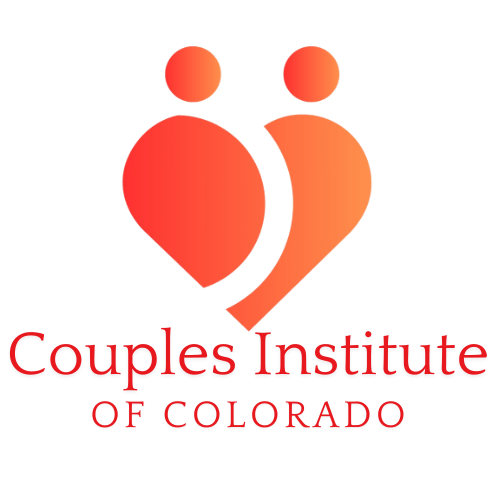 How LGBTQ+ Counseling Works:
How LGBTQ+ Counseling Works:
LGBTQ+ counseling refers to therapy and support services designed specifically to address the unique challenges and experiences of individuals who identify as lesbian, gay, bisexual, transgender, queer, and other sexual orientations and gender identities that fall outside of traditional heterosexual and cisgender norms. The goal of LGBTQ+ counseling is to provide a safe, non-judgmental space where you as an individual or as a partner to another individual can explore and address the emotional, psychological, and relational aspects of their experiences.
LGBTQ+ counseling follows many of the same principles as general therapy but is tailored to address the specific needs of LGBTQ+ individuals and communities. Counselors working with LGBTQ+ clients take into account the complex interplay of identity, relationships, social issues, and personal experiences related to gender and sexuality.
How I Work With Couples and Individuals From LGBTQ+ Community
1. Creating a Safe and Affirmative Space
One of the core principles of LGBTQ+ counseling is ensuring that the therapy space is affirming and inclusive. For many LGBTQ+ individuals, traditional therapy spaces can feel alienating or hostile due to past experiences of discrimination or judgment based on their identity. A key part of LGBTQ+ counseling is creating an environment where clients feel fully supported and accepted, regardless of their sexual orientation, gender identity, or expression.
I use inclusive language, avoid assumptions, and ensure that your identities are validated and respected. For example, asking about your preferred pronouns and providing resources that reflect the diversity within the LGBTQ+ community are important aspects of this approach.
2. Addressing Unique Challenges and Discrimination
LGBTQ+ individuals often face unique life challenges, including experiences of discrimination, stigmatization, and marginalization. These challenges can manifest in various aspects of life, including family relationships, workplace dynamics, social circles, and even within healthcare systems.
In counseling, I help clients navigate the emotional impact of these external pressures and provide tools to build resilience in the face of societal prejudice. In our sessions I also focus on helping you cope with internalized homophobia or transphobia, which can occur when someone has absorbed negative societal messages about their identity.
3. Exploring and Affirming Sexual Orientation and Gender Identity
As your therapist, it is my focus to provide a safe space to explore sexual orientation and gender identity in a supportive way. For individuals who are still in the process of discovering their identity, I offer guidance and support to help you work through feelings of confusion, fear, or shame. This can be especially important for coming out processes, helping you navigate the challenges associated with revealing your identity to family, friends, or colleagues.
For transgender and non-binary individuals, I can assist in processing issues related to gender dysphoria (the discomfort or distress that arises from a mismatch between gender identity and sex assigned at birth), transitioning (socially, legally, or medically), and navigating gender-related challenges.
4. Supporting Mental Health and Emotional Well-being
Due to societal discrimination, many LGBTQ+ individuals experience higher rates of mental health challenges, such as anxiety, depression, self-esteem issues, and suicidal thoughts. In counseling sessions I focus on mental health support, helping clients address these issues while promoting self-acceptance and emotional resilience.
I use various therapeutic techniques, such as cognitive-behavioral therapy (CBT), emotion-focused therapy (EFT), or mindfulness-based interventions, to help clients manage emotional distress, challenge negative thought patterns, and enhance coping mechanisms.
5. Building Healthy Relationships
For couples or individuals in LGBTQ+ relationships, counseling can provide tools for creating and maintaining healthy relationships. This may include learning effective communication skills, resolving conflicts, and understanding how societal pressures affect their relationship dynamics. I help partners navigate issues such as family acceptance, dealing with discrimination as a couple, or managing the complexities that may arise from differing levels of comfort with one’s identity.
I also help LGBTQ+ couples work through issues related to sexual health, intimacy, and boundaries, ensuring both partners’ needs are met in a healthy, mutually respectful way.
6. Addressing Minority Stress and Internalized Stigma
LGBTQ+ individuals may experience minority stress, which refers to the chronic stress that arises from being part of a marginalized group. This can include the fear of being rejected or discriminated against, which often leads to internalized stigma. I, in LGBTQ+ therapy work to help clients recognize and process this stress and reduce its impact on their mental and emotional health.
By understanding the societal pressures and stigma they face, clients can begin to unpack any negative self-perceptions they’ve internalized and work toward a healthier sense of self.
7. Fostering Resilience and Empowerment
My central goal of LGBTQ+ counseling is empowerment. I help clients cultivate resilience, self-worth, and authenticity, which allows them to navigate challenges while staying true to their identity. This can involve celebrating personal achievements, acknowledging progress, and building a strong support system.
LGBTQ+ counseling often helps individuals and couples feel empowered to advocate for themselves, engage with their communities, and find affirming spaces where they are accepted for who they are.
8. Supporting Intersectional Identities
LGBTQ+ individuals may have multiple, overlapping identities, such as being a member of a racial or ethnic minority, having a disability, or living in a specific cultural or socio-economic context. Intersectionality is the concept that people experience multiple forms of oppression or privilege based on their intersecting identities. I, as your therapist recognize these complexities and help my clients navigate how different aspects of their identity influence their lived experiences, relationships, and challenges.
As your therapist, it is my dedication to provide a supportive, affirming environment where you can explore your sexual orientation, gender identity, relationships, and mental health with guidance from me – a trained therapist.
Visit us at: www.couplesinstituteofcolorado.com
Or Schedule an appointment today
7120 East Orchard Rd., Suite 303
Englewood, CO 80111
818-497-7034


